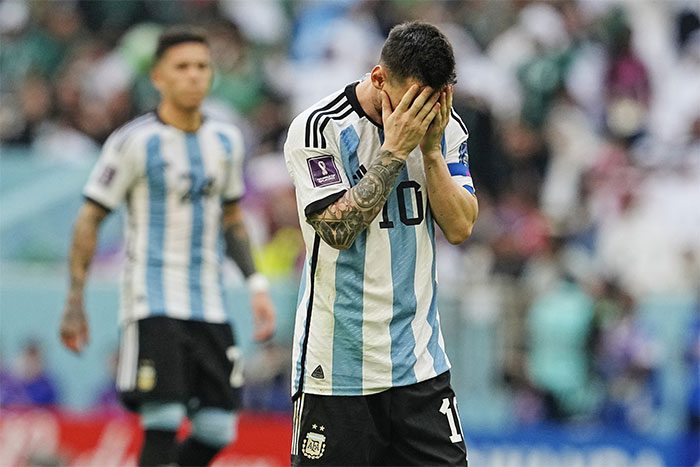The conclusion of the 2022 World Cup opens a new chapter in football. Starting in 2026, the number of teams participating in the World Cup will increase to 48.
Many fans and experts are concerned that expanding the number of teams will decrease the quality of the tournament. FIFA, the global governing body of football, has stated that it is considering how to organize the rounds in the most perfect and balanced manner possible.
The first issue is deciding which teams will compete. The primary goal of the World Cup is to find the best team, but FIFA also views the tournament as an opportunity to develop the sport. This is also why Europe currently has only 13 of the 32 available spots, despite having 16 of the top 32 teams in the world.
Contrasting Options
The additional 16 spots will primarily be allocated to increase diversity, giving teams from various countries the opportunity to participate in the World Cup, rather than adding spots for the top teams.
The number of teams from Asia and Africa participating in the 2026 World Cup will nearly double. Europe will gain 3 additional spots, but overall, the proportion of European teams will decrease from about 40% to one-third.
Next, FIFA must decide on the tournament format to determine the best team among the 48. The fairest solution is a round-robin system, commonly used in national football leagues.

The Argentina national team lost to Saudi Arabia in the group stage, but due to the tournament format, they still had the chance to “redeem” themselves in subsequent matches. (Photo: Nbcnews).
In this format, each team plays against all other teams, leading to the final ranking results. This method ensures fairness and clearly demonstrates the strength of each team, but it is impractical for the World Cup, as it would require 48 teams to play 1,128 matches in one month, or 36 matches each day. This format would also eliminate the dramatic final match.
On the other end of the spectrum, a knockout stage would require far fewer matches. With 32 teams, only 31 matches are needed to determine the champion. However, this method could waste the time and money of many teams and fans, who might arrive at the tournament to play or watch only one match, only to see their team eliminated immediately.
Football is a game with many variables, and a weaker team can occasionally win against a stronger team, making the knockout format the most “random” of all. Under this format, Argentina would not have been able to win the World Cup this year since they lost their opening match to Saudi Arabia.
Therefore, most world championships in various sports include a group stage, where teams are arranged into smaller ranked tournaments, and only the highest-ranked teams in their groups advance to the knockout stage.
The Dilemma for FIFA
This is also why FIFA finds itself in a difficult position with the number 48. 32 teams can be divided into 8 groups, each with 4 teams, and 2 spots will advance to the knockout stage. However, with 48 teams, it becomes quite “tricky” to arrive at 32 or 16 teams for pairing in the knockout phase.
FIFA plans for the upcoming World Cup to feature 16 groups, each with 3 teams. The top 2 teams from each group will advance to the 32-team knockout stage.
However, this approach could render some of the final matches in the group stage meaningless once the top 2 positions have been decided. Worse, it could lead to collusion when 2 teams playing in the final match could both advance with a draw.

Messi and the Argentina national team celebrating their victory at the World Cup. It is not easy to find a fair tournament format for 48 teams that does not compromise the excitement of the final. (Photo: Reuters).
Another potential solution could be 12 groups of 4 teams. The top 2 teams from each group would advance to the knockout stage, along with the 8 best third-placed teams, forming a total of 32 teams. However, selecting the “best” 8 third-placed teams could be contentious, regardless of the criteria used.
A more radical approach is the Swiss System, a tournament format used in chess and other board games. After each round, winning teams compete against each other and losing teams compete against each other, repeating this until a final ranking is reached. Strong teams that unfortunately lose still have a chance to redeem themselves and rise in their group ranking.
According to a study by Laszlo Csato at Corvinus University in Budapest, this format is the most effective at ranking teams over a short period. Starting in 2024, the Champions League will adopt a variant of the Swiss System for the group stage, selecting 16 teams for the knockout round from 36 participating teams.
However, in football, using the Swiss System for the group stage rather than the entire tournament would make it challenging to ensure that each group has a similar “difficulty” level, avoiding scenarios where a team advances due to facing many easier opponents in the group stage. Fans and teams might complain or even express outrage over the group draw results.
If the Swiss System were applied to the entire tournament, fans would lose the thrilling final, as the highest-ranked team would be the one that consistently wins throughout the tournament, rather than depending on a single match.
Any decision by FIFA will undoubtedly cause discomfort, especially given the simplicity of the current format. But it is possible that this situation is only temporary, and football fans will still be excited about the World Cup, regardless of the format. Particularly, fans in countries with teams participating in the World Cup for the first time will surely be thrilled.


















































